We often get so caught up in our daily grind that we forget to pause and reflect on what truly matters. But sometimes, it’s the animal kingdom that gives us the nudge we need to question our priorities. Animals have a knack for living purposefully, and their habits can shed light on how we might consider living more intentionally. Let’s take a closer look at some of these fascinating behaviors that might just make us rethink what’s important.
1. Elephants’ Family Bonds
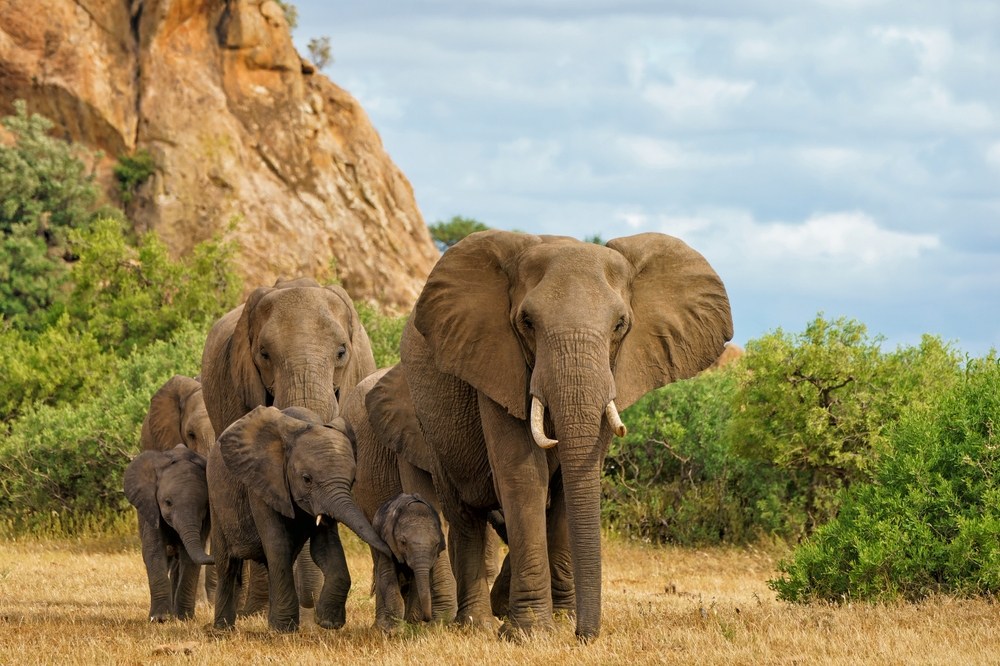
Elephants are known for their strong family connections, often forming close-knit groups led by a matriarch. They travel together, protect each other, and even mourn the loss of their family members. Watching elephants prioritize their family could make you wonder if you’re spending enough quality time with your own loved ones. When was the last time you called a family member just to check in? According to Dr. Caitlin O’Connell, a renowned elephant expert, these family-centric values are crucial for their survival and well-being, suggesting that perhaps we too should value our relationships more deeply.
Elephants also demonstrate empathy, often comforting each other in times of distress. You might recall a time when you offered—or needed—comfort from a loved one. Their behavior invites us to consider how often we make space to support those we care about. Are we attuned to the emotional needs of our friends and family? In a world that often prioritizes individual success, elephants remind us that emotional connections are equally important.
2. Bees’ Teamwork
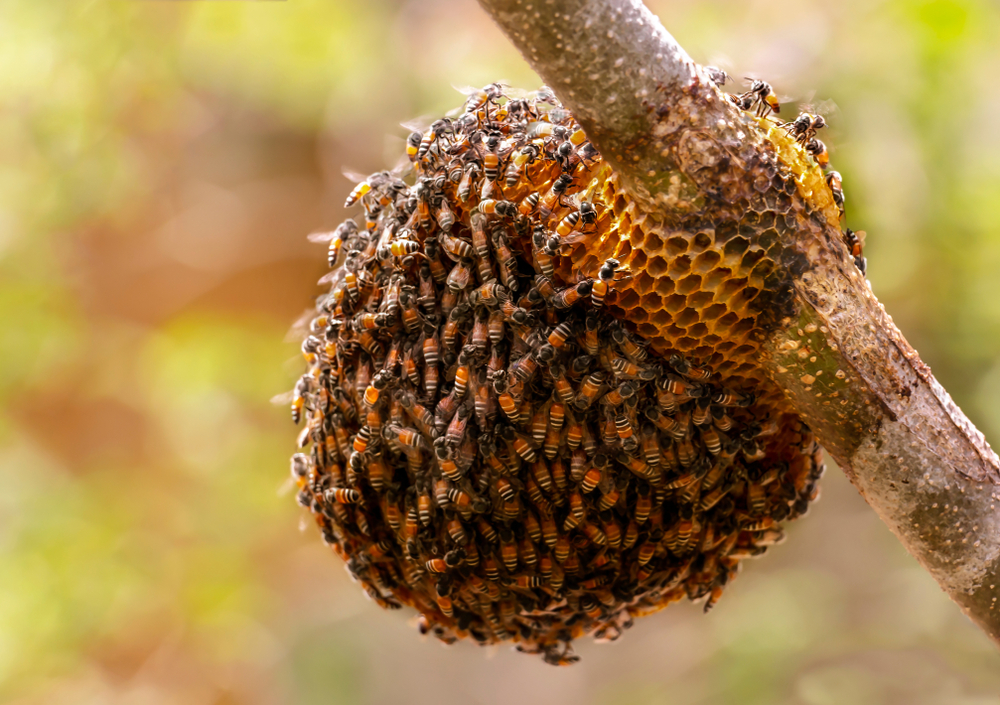
Bees have mastered the art of teamwork. In a hive, every bee has a specific role: workers collect nectar, drones mate with the queen, and the queen lays eggs. They work tirelessly and effectively because of this clear division of labor. Observing bees might make you question how well you function as part of a team. Are you collaborating effectively, or are you trying to do everything yourself, risking burnout?
The efficiency of bees is inspiring. Their ability to work together toward a common goal highlights the power of collaboration. It also raises questions about how we prioritize tasks in our own lives. Are we focusing on what truly contributes to our collective goals, or getting sidetracked by less important tasks? Bees remind us that great things can be accomplished when everyone works together, each playing their part.
3. Cats’ Napping Routine

Cats are experts at knowing when to rest, often taking several naps throughout the day. While they might seem lazy at first glance, their routine speaks to the importance of rest for overall well-being. Cats prioritize their sleep to conserve energy for when they need it most. Dr. Elizabeth Colleran, a former veterinarian who had expertise in feline medicine, notes that cats’ sleep patterns are vital for their health and longevity, something we could all learn from as we often neglect proper rest.
It’s easy to get caught up in the hustle and bustle of life, forgetting to take breaks when necessary. However, adopting a cat-like approach to rest can recharge your batteries and enhance productivity. Consider if you’re giving yourself enough downtime to truly relax and rejuvenate. Are you listening to your body when it signals it’s time to rest? Cats may encourage us to take our sleep more seriously and recognize its role in maintaining a balanced life.
4. Dolphins’ Playfulness
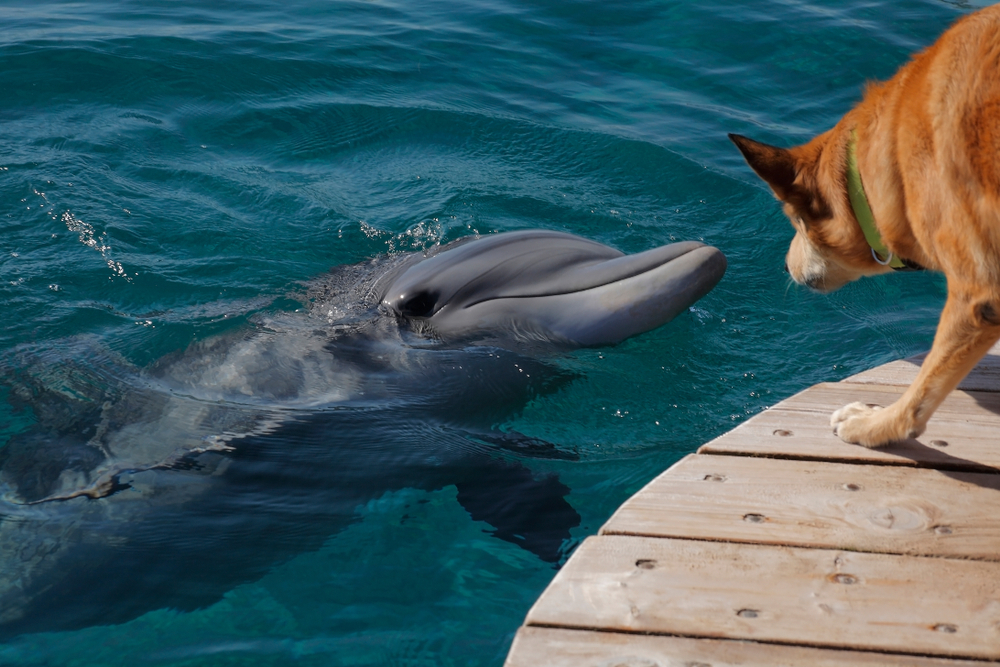
Dolphins are known for their playfulness, often seen leaping out of the water and riding waves. Play isn’t just for fun; it’s a crucial part of their learning and social bonding. This playful behavior can prompt you to consider whether you’ve been taking life too seriously. Are you allowing yourself enough time to enjoy life and explore new experiences? Dolphins remind us that play is not only enjoyable but also necessary for a well-rounded life.
Engaging in playful activities can reduce stress and improve mental health. It allows you to break free from routine and find joy in the present moment. Reflect on how often you incorporate fun into your days. Are you making room for activities that bring you happiness and laughter? Dolphins encourage us to see the lighter side of life and appreciate the moments that make us smile.
5. Ants’ Persistence
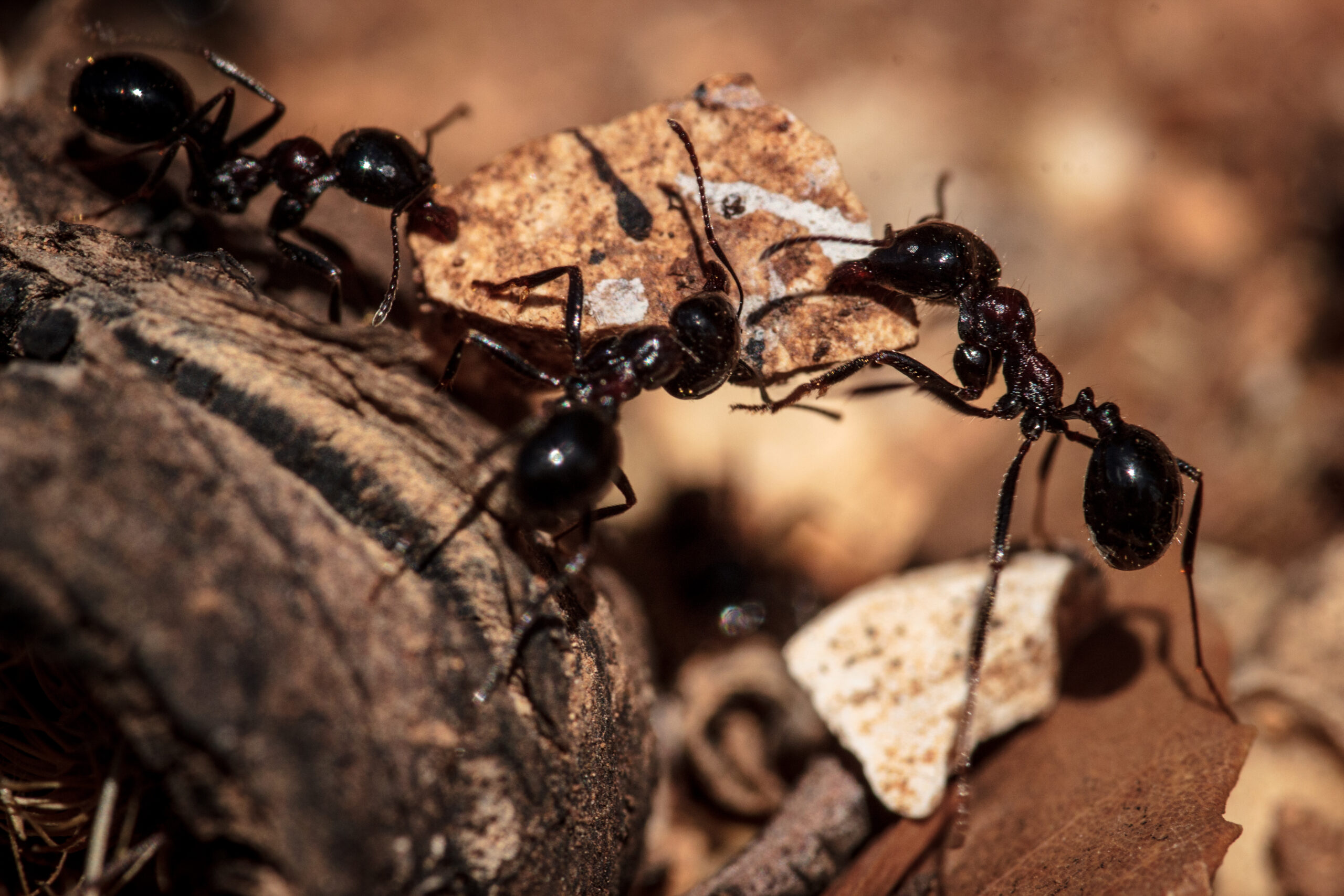
Ants are incredibly persistent creatures. They work tirelessly, often carrying objects many times their own weight back to their colony. This relentless drive can inspire you to reassess how persistent you are in pursuing your goals. Are you as determined to overcome obstacles, or do you give up too easily? A study led by Dr. Deborah Gordon, a biologist specializing in ant behavior, highlights that ants’ persistence is key to their survival and success, offering a model of perseverance for us to emulate.
Watching ants can be a reminder that persistence pays off. It’s easy to get discouraged when faced with setbacks, but ants show us that every little effort counts. Their dedication underscores the importance of resilience in achieving long-term goals. Are you sticking with your objectives despite challenges? Ants remind us that persistence and patience can lead to eventual success.
6. Penguins’ Loyalty
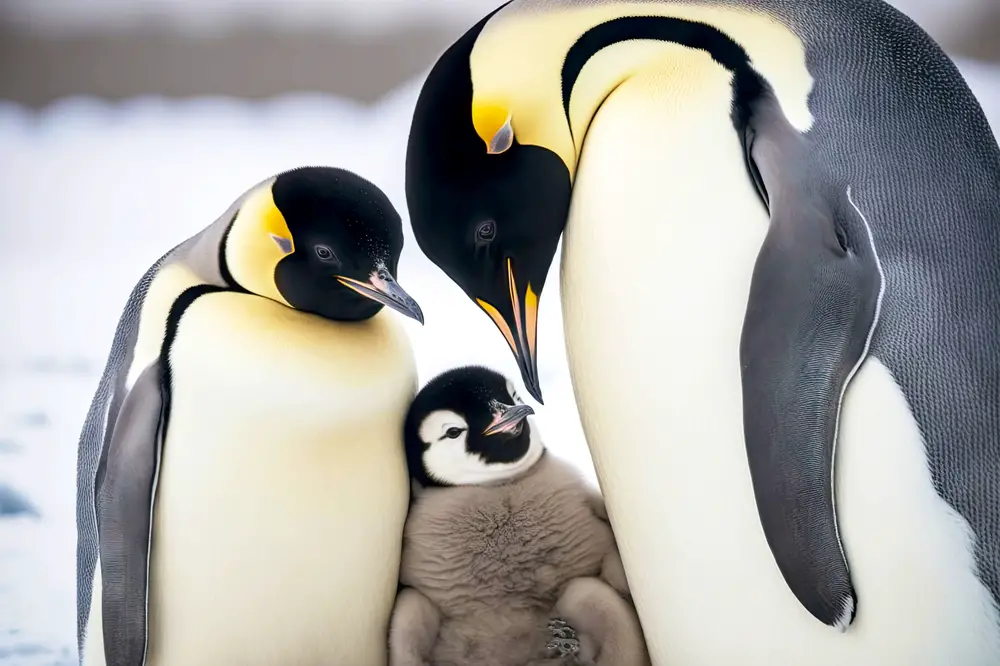
Penguins are famed for their loyalty, often mating for life and taking turns caring for their young. They endure harsh conditions to provide for their partners and offspring, showcasing a remarkable level of commitment. Their devoted behavior may prompt you to evaluate loyalty in your own relationships. Are you demonstrating the same level of commitment to your loved ones? Penguins can teach us the value of dedication and trust in our interactions with others.
This loyalty extends beyond romantic relationships to friendships and community. The strong bonds penguins form help them survive the harshest climates. Are you nurturing your relationships to ensure they withstand the test of time? Consider how you might prioritize loyalty and support in your own life. Penguins remind us that loyalty is a powerful force that binds us together through thick and thin.
7. Squirrels’ Resourcefulness
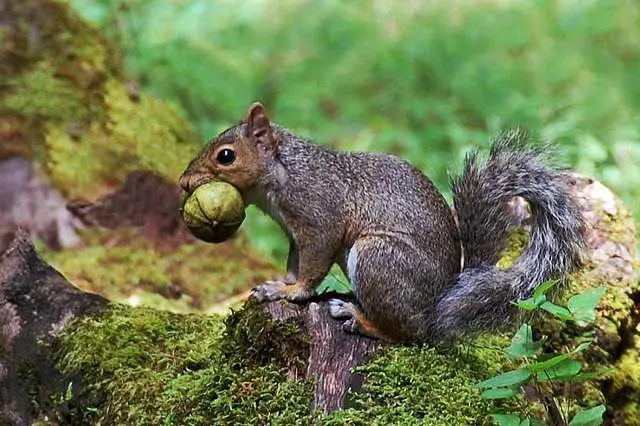
Squirrels are experts at planning ahead, often burying nuts to ensure they have food during lean times. Their resourcefulness is a lesson in preparation and foresight. Watching squirrels can lead you to question how well you’re planning for the future. Are you taking the necessary steps to ensure you’re prepared for unexpected challenges? Dr. Lucia Jacobs, a psychologist who studies animal behavior, notes that squirrels’ caching behavior is a sophisticated survival strategy, which could be a model for human foresight.
This resourceful behavior prompts us to consider our own approach to planning and preparedness. Are you setting aside resources for a rainy day, or are you living paycheck to paycheck without a safety net? Squirrels remind us of the importance of being proactive and thinking ahead. A little planning can go a long way in avoiding unnecessary stress. By emulating squirrels’ foresight, we can better equip ourselves for the future.
8. Wolves’ Leadership Skills
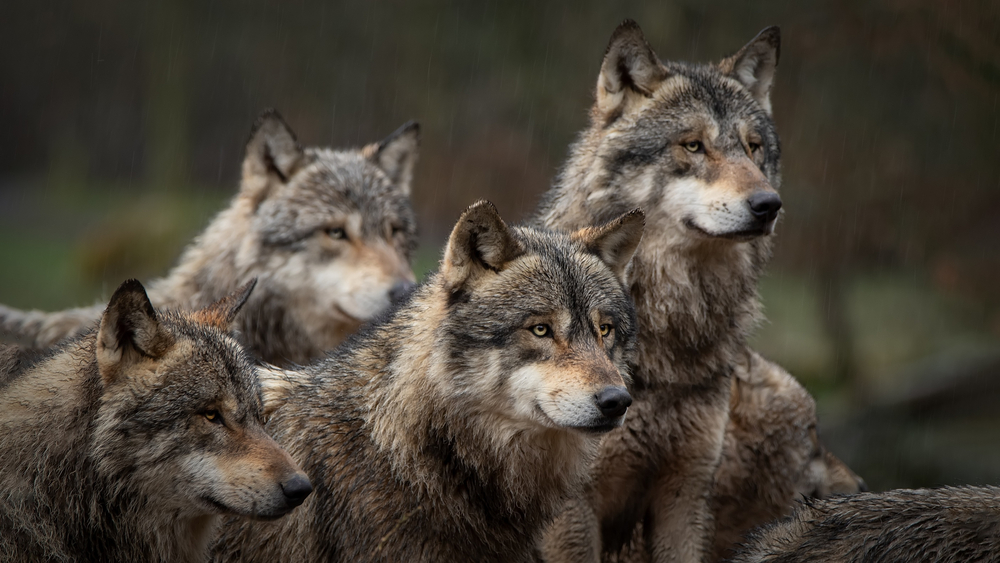
Wolves are known for their pack structure, with a clear hierarchy and designated leaders. The alpha wolves guide the pack, making decisions that impact the group’s survival. Observing wolves can make you think about leadership in your own life. Are you providing clear guidance and support to those who look up to you? Wolves remind us that effective leadership involves responsibility and the well-being of the entire group.
Leaders within a wolf pack are also excellent communicators. They use vocalizations and body language to convey messages and maintain order. Consider how you communicate as a leader, whether at work or in your personal life. Are you ensuring that everyone understands their roles and goals? Wolves show us that leadership is as much about communication and understanding as it is about making tough decisions.
9. Sea Otters’ Tool Use
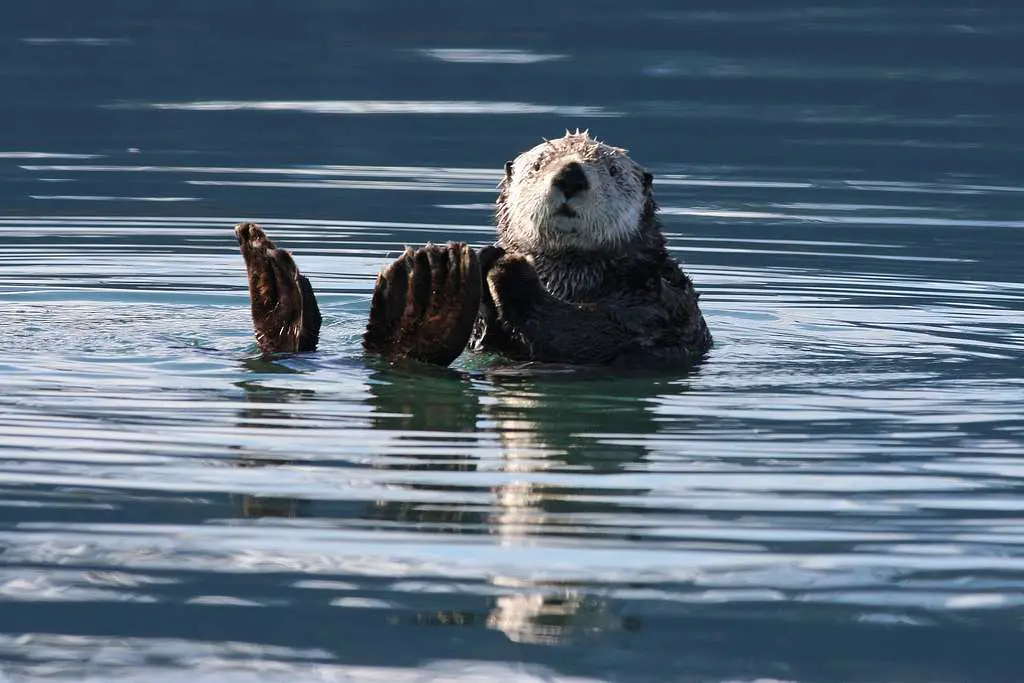
Sea otters are one of the few non-human animals known to use tools. They use rocks to crack open shellfish, demonstrating remarkable problem-solving skills. This clever behavior might make you question how resourceful you are in tackling challenges. Are you thinking outside the box and utilizing available resources to solve problems? Sea otters remind us that creativity and innovation can help us overcome obstacles.
Their use of tools is a testament to adaptability and intelligence. In our fast-paced world, adaptability is more important than ever. Are you finding innovative solutions to modern problems, or sticking with outdated methods? Sea otters encourage us to stay curious and open-minded, embracing creativity in the face of challenges. They show us that a little ingenuity can go a long way.
10. Kangaroos’ Resilience
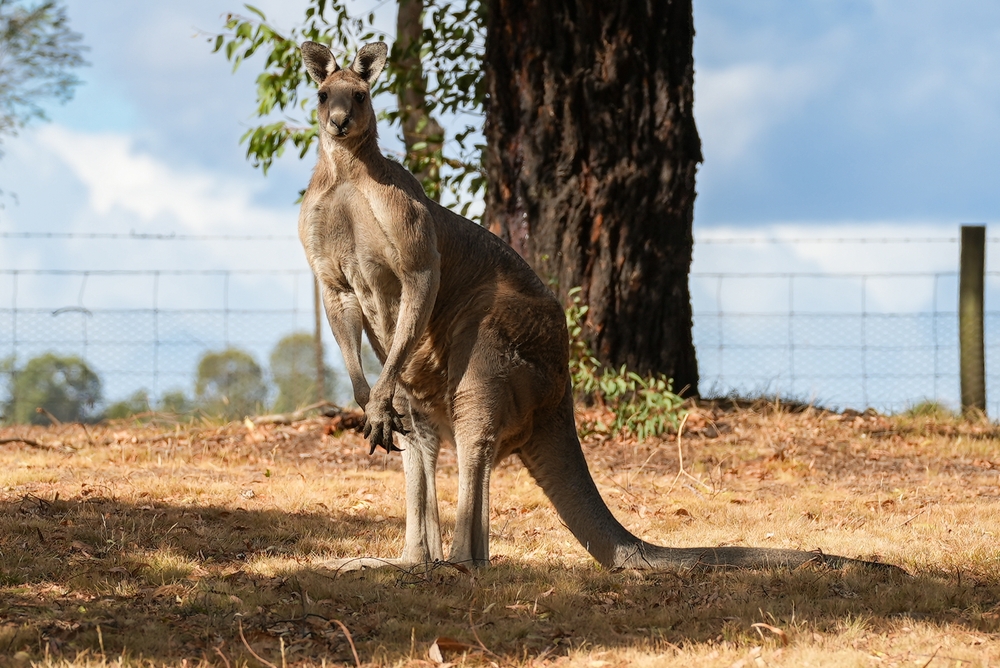
Kangaroos are built to endure tough conditions, with strong legs designed for long-distance travel and survival. They can go for weeks without water, relying on their resilience to thrive in harsh environments. Observing kangaroos might lead you to consider how resilient you are in your own life. Are you equipped to handle adversity and bounce back from setbacks? Kangaroos inspire us to harness our inner strength and resilience in the face of challenges.
Their ability to adapt to difficult circumstances is a powerful example of survival. In our own lives, resilience is key to navigating uncertainty and change. Are you cultivating resilience by learning from experiences and growing stronger as a result? Kangaroos show us that resilience is not just about enduring hardship but thriving despite it. They encourage us to build the mental and emotional fortitude necessary to overcome life’s hurdles.
11. Birds’ Migration

Birds undertake incredible migratory journeys, traveling thousands of miles to find better living conditions. This annual ritual speaks to their instinctual drive for self-preservation and adaptation. Watching birds migrate might make you question your own approach to change and adaptation. Are you willing to leave your comfort zone in pursuit of better opportunities? Birds inspire us to embrace change as a necessary part of growth and survival.
The ability to adapt and move on is vital for their survival. In our own lives, recognizing when it’s time to move on can be challenging. Are you holding onto situations that no longer serve you, or are you open to seeking new horizons? Birds remind us that change, though daunting, can lead to new and rewarding experiences. They encourage us to be brave in the face of uncertainty and to trust our instincts.
12. Monkeys’ Curiosity
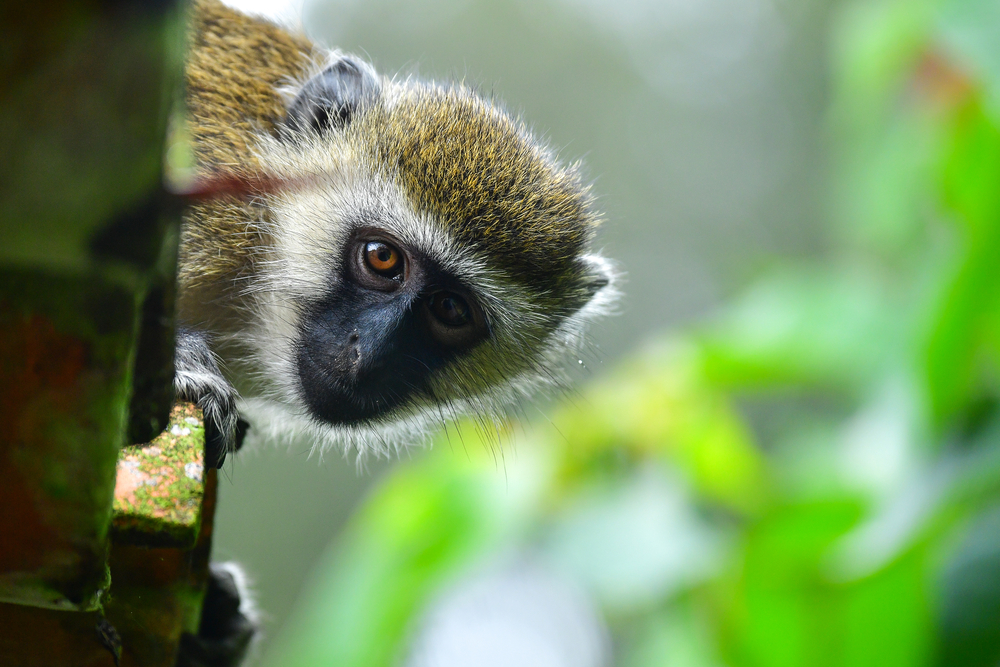
Monkeys are known for their curiosity and eagerness to explore their surroundings. They investigate new objects, learn from their environment, and adapt their behavior accordingly. This inquisitive nature raises questions about your own level of curiosity and willingness to learn. Are you open to exploring new ideas and experiences, or do you stick to what you know? Monkeys remind us that curiosity is the key to personal growth and innovation.
Being curious allows for continuous learning and adaptation. It keeps life interesting and opens doors to new opportunities. Are you nurturing your curiosity by seeking knowledge and challenging your assumptions? Monkeys encourage us to maintain a sense of wonder and exploration in our daily lives. They show us that a curious mind can lead to a richer, more fulfilling existence.
13. Turtles’ Patience
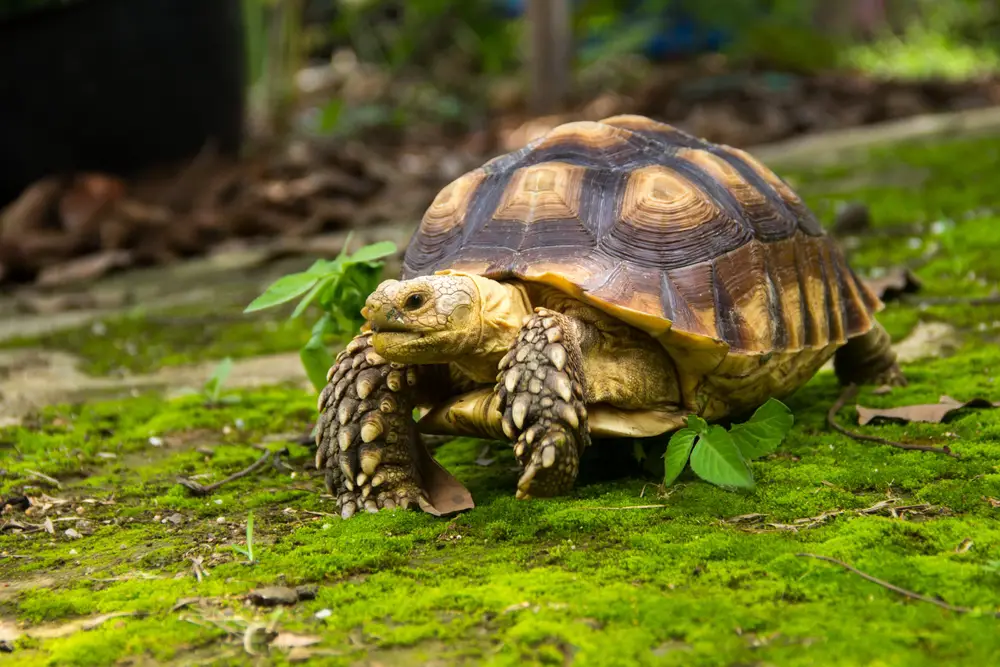
Turtles are often associated with patience, moving at a slow and steady pace throughout their lives. Their unhurried nature is a testament to the virtue of taking things slowly and thoughtfully. Watching turtles might make you reflect on your own relationship with time and patience. Are you rushing through life, or are you allowing things to unfold naturally? Turtles remind us that patience is a valuable trait that can lead to more thoughtful decisions.
Their slow approach allows them to live long and fulfilling lives. In a fast-paced world, patience can be a rare quality to find. Are you practicing patience in your interactions and decision-making processes? Turtles show us that sometimes, slowing down leads to greater success and satisfaction. They encourage us to embrace patience as a means to achieve our goals and enjoy the journey along the way.
